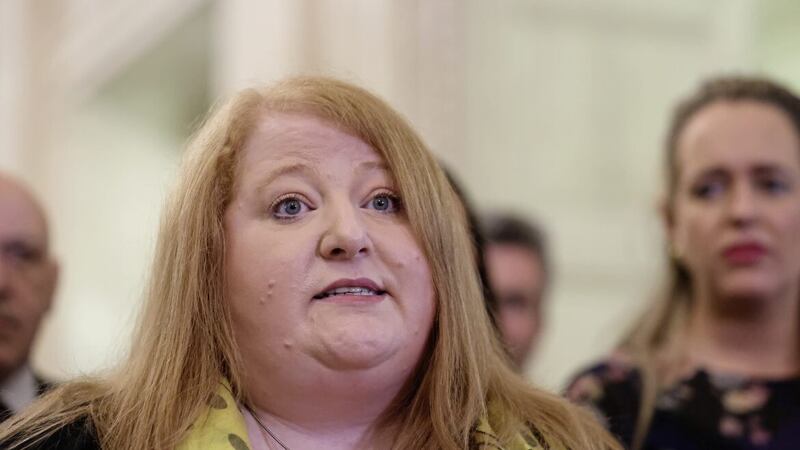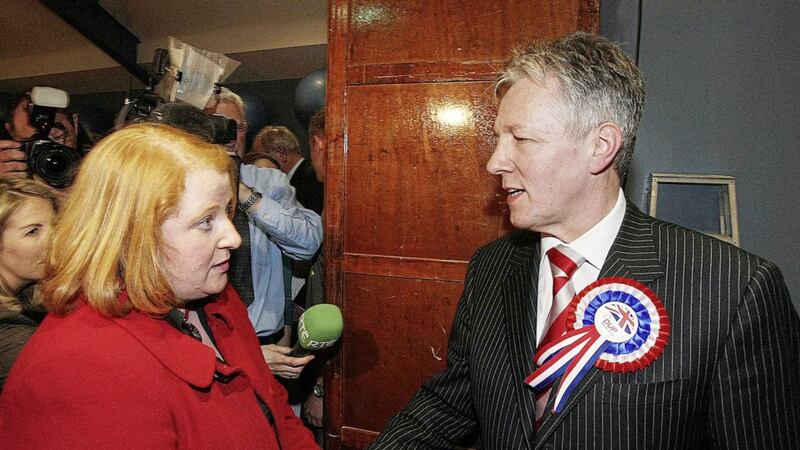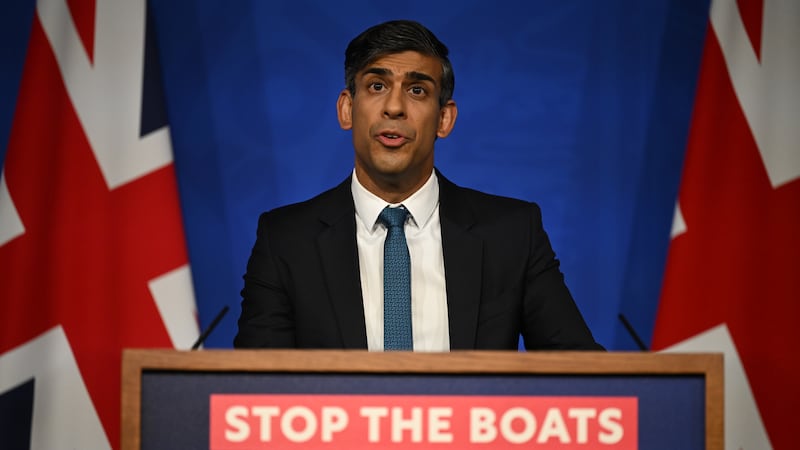Naomi Long has come close to admitting what has been evident for some time - Northern Ireland’s criminal justice system has effectively ground to a halt.
Speaking to the BBC, the Alliance justice minister said it could take the courts until 2028 to clear the pandemic backlog. Even before the pandemic, average times for minor and serious cases were two and three years respectively, double the figures in Britain. Long said the absence of a full executive is holding up solutions. That cannot be helping but nor is it much of an explanation, as all three parts of the system - police, prosecutors and courts - are operationally independent of Stormont and unaccountable to it, by design. While extra funding might help, again it is not an excuse: a 2018 Audit Office report found delay is due to disorganised and inefficient courts, rather than a shortage of money. Night courts and weekend sittings are not going to fix this problem. The whole system needs fundamental reform.
**
Let us be fair to the courts and acknowledge what they are expected to deal with. Last week, a man charged with New IRA membership asked for his electronic tag to be removed so he could attend a beach yoga class. The judge declined. This week, another man charged in the same investigation asked for his bail terms to be changed so he could attend a 1980s-themed disco. The judge agreed. The potential inconsistencies here are mind-bending. Where the courts now stand on a Jane Fonda Workout is anyone’s guess.
**
The day before this week’s assembly recall, UUP former leader Mike Nesbitt said the move was pointless as the DUP was not going to nominate a speaker. Nesbitt, a candidate for the speaker’s role, said parties would be better meeting in private to restore devolution.
That is the model provided for in New Decade, New Approach, which created a party leaders’ forum as a “safe space”. However, NDNA did not envisage a boycott immobilising both the executive and the assembly. The six-month caretaker period it introduced for the executive if one of the two largest parties walks out would usually be enough to keep the assembly in operation. Only May’s election, with its requirement to nominate a new speaker and deputy speakers, allowed the DUP to drop a second spanner in the works. Recall is the response this deserves, not least because the new NDNA rules were a DUP demand. Private meetings to restore the executive can always take place as well.
**
Sir Jeffrey Donaldson has condemned Michelle O’Neill for telling the BBC “there was no alternative” to IRA violence.
The Sinn Féin vice-president’s comment was demonstrably untrue but hardly surprising. The truly grim part of her interview was when she was asked if she ever wonders, even privately, if “some of the things that were done in the name of the IRA were ever justified.”
O’Neill would only respond with whataboutery on collusion, despite otherwise telling interviewer Mark Carruthers we should all put the past behind us.
The first minister designate could transform politics with a few words of proper reflection on the Troubles. This would only increase support for Sinn Féin and its cause. But it seems to be out of the question, from O’Neill and the party in general.
**
At separate hustings events in Exeter and Cardiff, Conservative leadership favourite Liz Truss branded Scottish first minister Nicola Sturgeon an “attention-seeker” who should be ignored, and Welsh first minister Mark Drakeford a “low-energy version of Jeremy Corbyn”, vowing to “crack down on his negativity”.
Will Truss have anything sharp to say about Stormont’s first and deputy first ministers in waiting when the hustings come to Belfast on August 17? It will be rather obvious if she does not. While insults are unlikely, indirect criticism of Sir Jeffrey Donaldson is a prospect to watch out for. Truss’s bill to disapply the protocol was meant to have the DUP back at Stormont a month ago.
**
DUP education minister Michelle McIlveen has warned teachers could have their pay cut if they take industrial action. As political opponents have noted, this is a bit rich from a party refusing to turn up for work. However, McIlveen was mainly relaying a warning from school principals and management bodies, who have been increasingly frustrated with a work-to-rule by some teachers, involving refusal to cover absences, plan lessons and attend meetings. Further action now being proposed by unions includes strikes and action short of strikes. Hence the threat of cutting pay if staff are not performing all the tasks in their contracts.
The DUP is a populist party, not a Thatcherite party. It has no desire to pick a fight with public sector unions. The significance of McIlveen’s remarks is that the DUP is losing its fear of such a fight. It realises that after the pandemic there will be little public support for more disruption to education.
**
Derry City Council held a competition to name a seal pictured on a new riverfront mural to mark the Foyle Maritime Festival. The winning entry, disappointingly, is ‘Ronan’ - so close to the right name for a seal, which is of course ‘Ron’.









